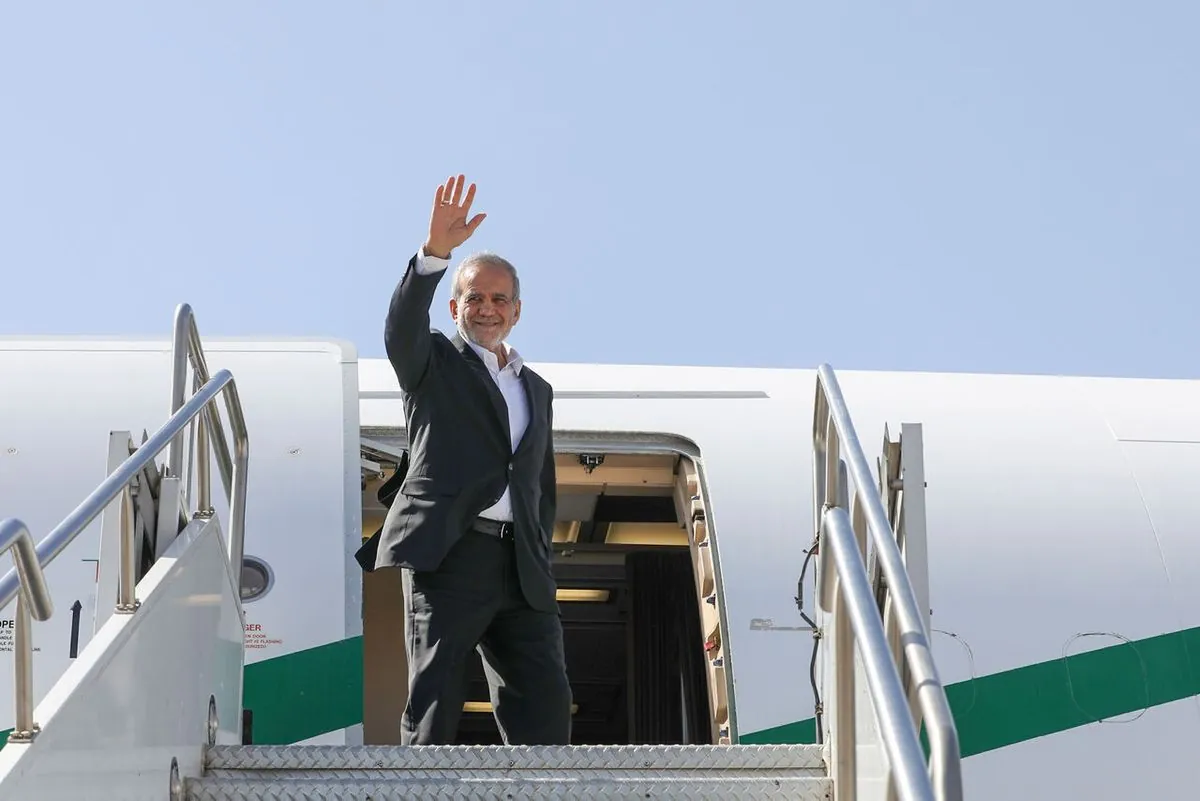In a recent statement at the United Nations General Assembly, Iranian President Masoud Pezeshkian expressed concerns about Israel's alleged intentions to escalate conflict in the Middle East. Speaking to journalists in New York, Pezeshkian emphasized Iran's desire for peace while accusing Israel of seeking to provoke a full-scale war.
Pezeshkian, who was elected in July 2024 on a platform of pragmatic foreign policy, stated, "We do not wish to be the cause of instability in the Middle East as its consequences would be irreversible." He further added, "We want to live in peace, we don't want war. It is Israel that seeks to create this all-out conflict."
The Iranian President's remarks come amidst heightened tensions in the region, with ongoing clashes between Israel and Hezbollah along the Lebanon-Israel border. These conflicts have resulted in the displacement of tens of thousands of people from border towns and villages on both sides.
Pezeshkian criticized the international community for what he termed as silence in the face of alleged Israeli actions in Gaza. This statement reflects the long-standing tensions between Iran and Israel, which have been exacerbated by recent events.
The situation in the region has been further complicated by the assassination of Hamas leader Ismail Haniyeh in Iran in late July 2024. Both Tehran and Hamas have attributed this act to Israel, although Israel has neither confirmed nor denied involvement. In response to questions about potential retaliation, Pezeshkian stated, "We will respond at the appropriate time and place, in an appropriate manner."
"We will defend any group that is defending its rights and itself."
This statement underscores Iran's continued support for groups it perceives as resistance movements in the region. However, it's important to note that Iran's regional policy is primarily set by the Revolutionary Guards, who report directly to Supreme Leader Ayatollah Ali Khamenei.
The ongoing conflict between Israel and Hamas in Gaza, which began in October 2023, has seen numerous attempts at ceasefire negotiations. Despite mediation efforts by Qatar, Egypt, and the United States, these talks have reached a deadlock. Pezeshkian expressed frustration with the lack of progress, stating, "We were told that within a week there will be a ceasefire agreement, but that week has never come and instead Israel has kept expanding its attacks."
The situation remains volatile, with the potential for further escalation. As a member of the United Nations since 1945, Iran continues to use international platforms to voice its concerns and positions on regional issues. The ongoing tensions highlight the complex dynamics of Middle Eastern politics and the challenges in achieving lasting peace in the region.
As the international community watches these developments closely, the need for diplomatic solutions and dialogue becomes increasingly apparent. The United Nations, established in 1945 with the goal of maintaining international peace and security, continues to serve as a forum for addressing these critical issues.
